May 30, 2025 | 01:15 GMT +7
May 30, 2025 | 01:15 GMT +7
Hotline: 0913.378.918
May 30, 2025 | 01:15 GMT +7
Hotline: 0913.378.918
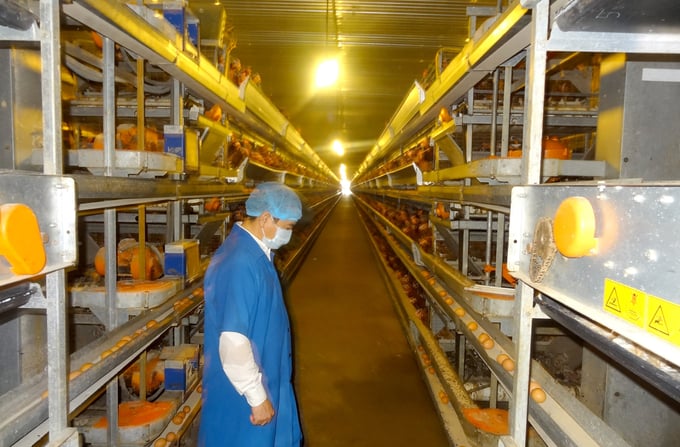
A chicken egg farm in Dong Nai province. Photo: Son Trang.
According to Associate Professor Phan Van Luc, Vice Chairman of the Vietnam Poultry Association (VIPA), poultry egg production stands as a traditional and significant sector within the agricultural landscape of Vietnam.
The egg production industry is currently witnessing a strong upward trend with an average annual growth rate of approximately 5.6%, which encompasses both the number of hens and egg yield. This growth rate is further facilitated by substantial investments and the integration of advanced technologies in the industrial production of poultry. Consequently, the egg production process is also modernized substantially.
A notable example includes Dang Khoi chicken farm in Vinh Cuu district, Dong Nai province. The farm proprietor has made numerous investments in a complex automatic egg collection and sorting system. Additionally, the farm utilizes collected chicken manure as organic fertilizer for future crops.
Mr. Trinh Dang Khoi, owner of Dang Khoi chicken farm, shared, "Our farm has gradually directed investment streams towards modern technology and professional poultry care procedures, with a focus on developing the workforce to ensure the seamless operation of all processes within the farm. We aim to continuously innovate technology, apply scientific and technological methods in production to enhance productivity and efficiency in addition to contributing to environmental protection."
Associate Professor Phan Van Luc further posits that Vietnam retains substantial untapped potential in the field of poultry egg production. Most notably, the country possesses an expansive scope for domestic egg consumption. With a population of 100 million people, the domestic demand for eggs in Vietnam is growing exponentially. Accordingly, Vietnam's consumption rate of egg products is projected to reach 250 eggs per person by the year 2030.
On the other hand, global demand for egg consumption is on the rise. The egg consumption rate in developing countries currently averages around 8.9 kilograms per person per year. Similarly, the egg consumption rate in developed countries stands at 13.8 kilograms per person per year. Reportedly, global egg consumption rate is expected to increase by 5.4% within the next ten years. This presents an opportunity for Vietnam to boost its export of poultry eggs.
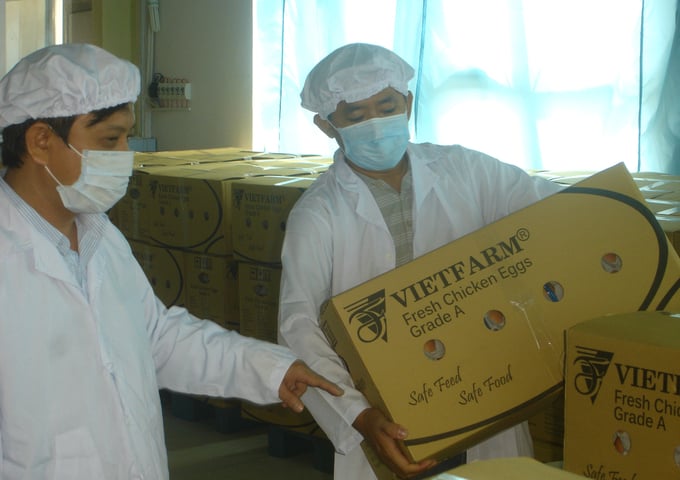
Chicken egg packaging for export at Vietfarm Company. Photo: Son Trang.
Regarding chicken eggs, Ms. Tran Ngoc Yen, Director of the Industry Analysis Division at Agromonitor, notes that the egg supply in Vietnam has been growing rapidly over the past three years. Accordingly, Vietnam's egg supply saw the highest increase during 2023, as companies increased their breeding of parent chickens due to high domestic egg prices, resulting in considerable profits for both farmers and poultry companies.
The egg supply has had a tendency to exceed demand since late 2022, with price drops below the production cost at various times during this period for white-feathered broiler chickens. Consequently, many meat chicken farming companies reduced the number of eggs placed in incubation and sold their inventories to the market, causing a decrease in domestic egg prices.
Ms. Yen stressed that Vietnam's chicken egg exports currently account for a marginal portion (less than 1%) of it's total egg yield. The primary reason for this low percentage is Vietnam's positioning in a region affected by avian influenza. However, egg production in Vietnam possesses several notable advantages.
Vietnam's chicken egg prices are currently lower than those in Thailand and other countries in the region, which may provide a competitive advantage for Vietnam in terms of export prices. The cost of poultry feed has decreased since the second half of 2023. Furthermore, it is anticipated that this trend will continue throughout 2024, which will help reduce the costs of poultry farming and lower the production costs of eggs.
Modern, closed-loop, and effective disease-controlled farms have improved poultry farming efficiency significantly. As a result, the cost of egg-laying chicken farming is competitive in comparison with neighboring countries.
Additionally, Vietnam has the potential to export eggs to countries to who it has a bilateral or multilateral trade cooperation agreement with. Accordingly, the country may utilize favorable tax regulations and the removal of customs duties to promote the export of eggs.
On July 31, 2023, the Hong Kong Department of Environmental Hygiene and Food Safety announced the removal of the ban on poultry eggs and poultry egg products imported from the provinces of Tay Ninh, Binh Duong, Binh Phuoc, and Dong Nai in Vietnam. This announcement can potentially boost Vietnam's poultry egg exports to Hong Kong.
Hong Kong serves as a significant market for the export of Vietnam's livestock products, including poultry eggs. Prior to the ban, Vietnam annually exported a substantial quantity of poultry eggs to Hong Kong, which is valued at tens of millions of USD.
Translated by Nguyen Hai Long
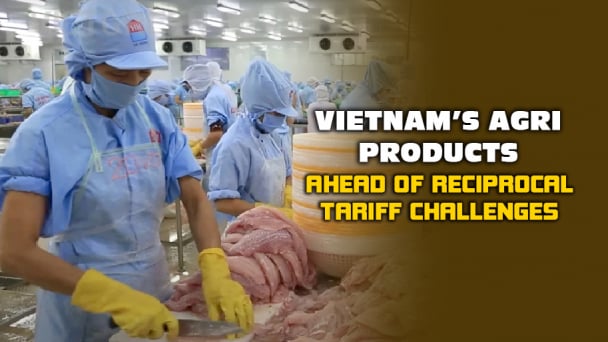
(VAN) Reciprocal tariffs are exerting pressure on U.S. exports, prompting Vietnamese firms to shift their focus to Muslim markets, Thailand, and Brazil.
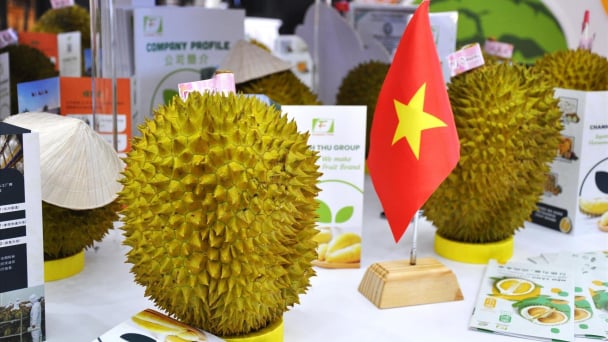
(VAN) A free booth for two years at Xinfadi, Beijing's largest wholesale market, will be allocated to Vietnam's agricultural products.
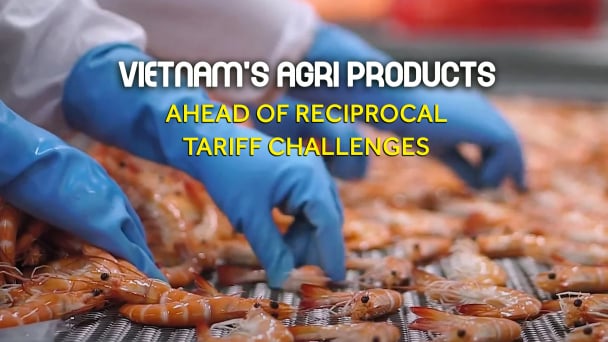
(VAN) Vietnamese shrimp exporters are actively looking for alternative markets and accelerating shipments to the United States in response to the pressure of impending reciprocal tariffs. This is occurring during a temporary tariff suspension.

(VAN) The import-export turnover between Vietnam and Singapore rose amid a trade rebound, with machinery, electrical equipment, and fuels making up the majority of the transaction value.

(VAN) Director General of the General Administration of Customs of China, Ms. Sun Mai Jun, has pledged to implement measures that will ease the import process for Vietnamese agricultural products.

(VAN) Although Vietnam is still increasing its coffee exports, the industry is currently in the process of determining market strategies in response to the U.S. imposition of reciprocal tariffs.

(VAN) With rising demand in Muslim-majority countries, Halal certification is becoming a critical passport for Vietnamese agricultural products seeking sustainable market access and consumer trust in the Middle East and Africa.